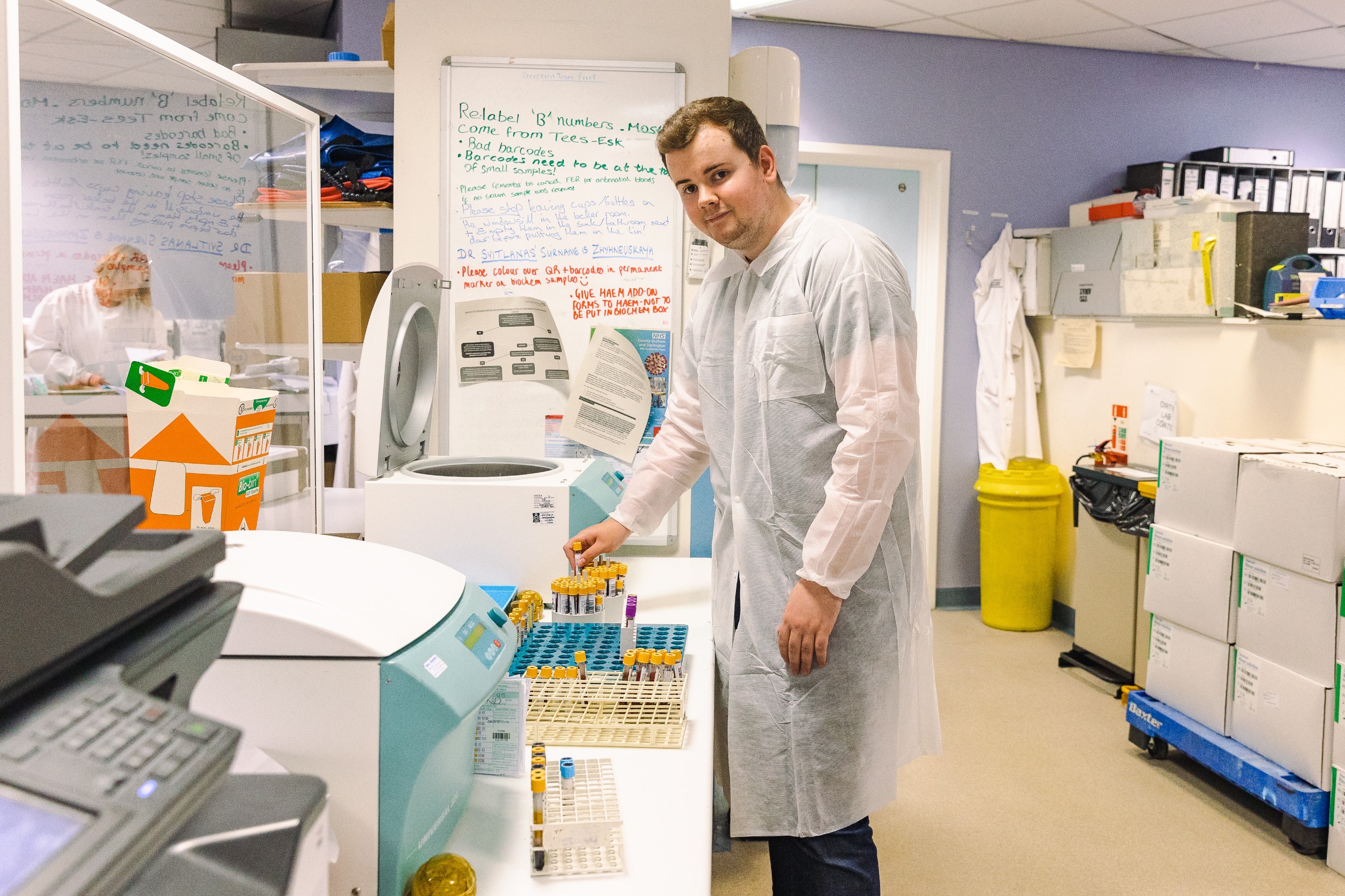
Clinical Biochemistry
The role is to offer support to families at what is a very difficult time for them. An immediate point of contact so that they feel they are being listened to and dealt with in a timely, organised way by people who understand their individual needs and who can give them time. An area where they will be given the first steps of guidance from registering the death to where, how and if they need any follow on guidance. To feel that this is not the end for them but that we are still there if they have any issues or just further support in the near future.
A quality bereavement service is an essential component of an end of life care pathway.
The aim is to:
The experience around the time of death and how this is delivered and received by the Families/ carers and representatives afterwards can have an influence on the grieving process and the long term health of the bereaved.
Overall impression left with the individual of how as a Trust we cared/managed their loved one can be changed not because of the care given but the failure to manage the issuing of the MCCD, belongings and any other issues in the following hours after the death. A good experience around the time of death and afterwards can positively influence the grieving process.
We must always remember that the deceased is still a patient in our care until they leave the mortuary.
Before completing any consent form or request for a hospital autopsy, telephone the appropriate pathologist through their secretary (Ext. UHND 32457) Advice regarding what tissue is likely to be retained, who is eligible to obtain consent for the autopsy and consent for the possible subsequent retention of tissue can then be given directly. The pathologists will ask for the case notes, request form and consent form to be sent to the laboratory.
If you are interested in viewing findings then please provide availability details and contact numbers.
When reporting a death to the Coroner, the Coroner's Office should be contacted:
Email: co-office
As a general guideline deaths listed below should be referred to the Coroner (the list is not comprehensive and if there is any doubt contact the Coroner's Office for advice).
All post-mortems are performed as soon as possible depending upon the circumstances of each particular case.
Clinicians are encouraged to attend and prior notice will be given as regards the time of the autopsy wherever possible.
Summary findings (issued as a cause of death) will be sent to the deceased's GP within several hours of completion of the autopsy in most cases (a notable exception being Coroner's autopsies which will proceed to an inquest).
Please note that all such bodies submitted to the mortuary (for post-mortem or not) must clearly be identified as a high risk and all appropriate staff (nursing, portering, mortuary) must be informed. Appropriate body bags and labels must be used. (See Infection Control Manual, Chapter 9).
In general known high risk cases will not be autopsied unless this is vital. The request form must clearly identify infectious risk and its nature. The cases must be discussed with the relevant pathologist. Cases of HIV and Hepatitis B (or similar infections) will be performed as a 'high Risk procedure. CJD and other category 4 infections will not be performed. If an autopsy is required on these cases the pathologist will liaise with other hospitals.
For any queries as regards disposal of foetal tissue, kindly refer to the unit policy (available in the department of Obstetrics and Gynaecology).
Please liaise with mortuary technical staff prior to directing relatives to the mortuary for body viewing (extension UHND 32300, or DMH 43594). Unbooked attendance for relative viewing can lead to unnecessary conflict, delays and distress for relatives of their expectation for viewing cannot be accommodated.
Consent & the Hospital Post Mortem:
Nominated Representative
Appointment of a Nominated Representative:
Signed in the presence of at least one witness who attests the signature, or
Signed at the direction of the person making the appointment, in their presence & that of at least one witness who attests the signature, or
Contained in the deceased person's will
Qualifying Relationships (ranking in highest priority first)
Discuss the Post mortem examination with the deceased person's relatives or nominee. They need to be given:
Those seeking consent should be sufficiently senior & well informed, with a thorough knowledge of the procedure.
Ideally they should be trained in the management of bereavement & in the purpose & procedures of post mortem examinations.
Usually the responsibility of the deceased persons clinician
This responsibility should not be delegated to untrained or inexperienced staff
Responsible clinician should contact the pathologist who will perform the PM, before discussion with relatives so that:
• Accurate guidance can be given on which, if any, organs or tissues are likely to be taken.
• Opportunity for pathologist to be available for any discussion the relatives may wish to have
• If pathologist certain no organs will be retained then there will be no need to obtain relative consent & this section of the form can be deleted